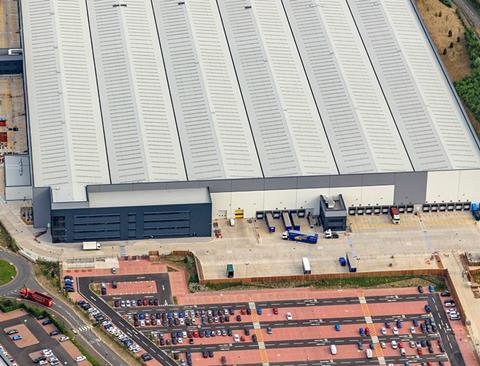Geo-political uncertainty and big upsets like Brexit and Trump's victory in the US have focused investors' attention on fundamentals and strong underlying trends, experts agreed at the PropertyEU Outlook 2017 – Europe & UK. In this context, it is unsurprising that logistics, the 'most politics-free' of sectors, emerges as a winner. Nicol Dynes reports.

'Looking ahead I would definitely pick out logistics as the star performer,' said David Inskip, director, EMEA Strategy and Research at CBRE Global Investors told a packed room at the City of London offices of BNP Paribas Real Estate.
'Investors have reached a point where they are cycle-aware and know they have to look at the big themes, and big box logistics is one of them.' The investor base has widened for the logistics sector and it now includes institutions and companies that until recently would only have looked at central London offices, Inskip said.
'There is a huge appetite for logistics now because people see structural and demographic changes,' said Simon Williams, head of investment at BNP Paribas Real Estate. 'People look at the real economy and at what is happening in the real world to identify opportunities in real estate.'
According to BNP Paribas Real Estate forecasts, UK property will deliver total returns of 0.2% in 2017, but while offices are expected to drop by 5.5%, retail and industrials will deliver better returns of +1.7% and 3.7% respectively.
Residential
The institutionalisation of residential is also a sign that investors are looking at real-world trends. In the UK, for example, the strong increase in house prices and slower wage growth have drained private money away from the market. Young professionals are now forced to rent for longer before they can afford to buy, so the gap in the housing market left by the withdrawal of private money is increasingly being filled by institutions.
'Institutional appetite will only grow, and the UK institutional market for residential will become as well developed as Germany's,' said Williams. 'It provides good returns and security of income, as there is a very low risk of having an empty building.'
The UK and the rest of Europe are likely to follow in the footsteps of US-style multifamily private rented sector (PRS), said Will Rowson, partner at Hodes Weill & Associates: 'PRS was horribly boring before the crisis and wonderfully boring during the crisis, as it delivers good returns.'
The panellists agreed that alternative sectors, from student housing to care homes, will also continue to be in demand, again because they reflect underlying long-term social trends which are independent of political events.
However, the property sector cannot ignore a number of elections and events in Europe in the next year which have an uncertain outcome and could have a significant impact on real estate. 'The market is still underestimating the chances of other populist overhauls and the impact of the rise of populism across Europe, from Italy to France,' said Sukhdeep Dhillon, senior economist at BNP Paribas Real Estate.










